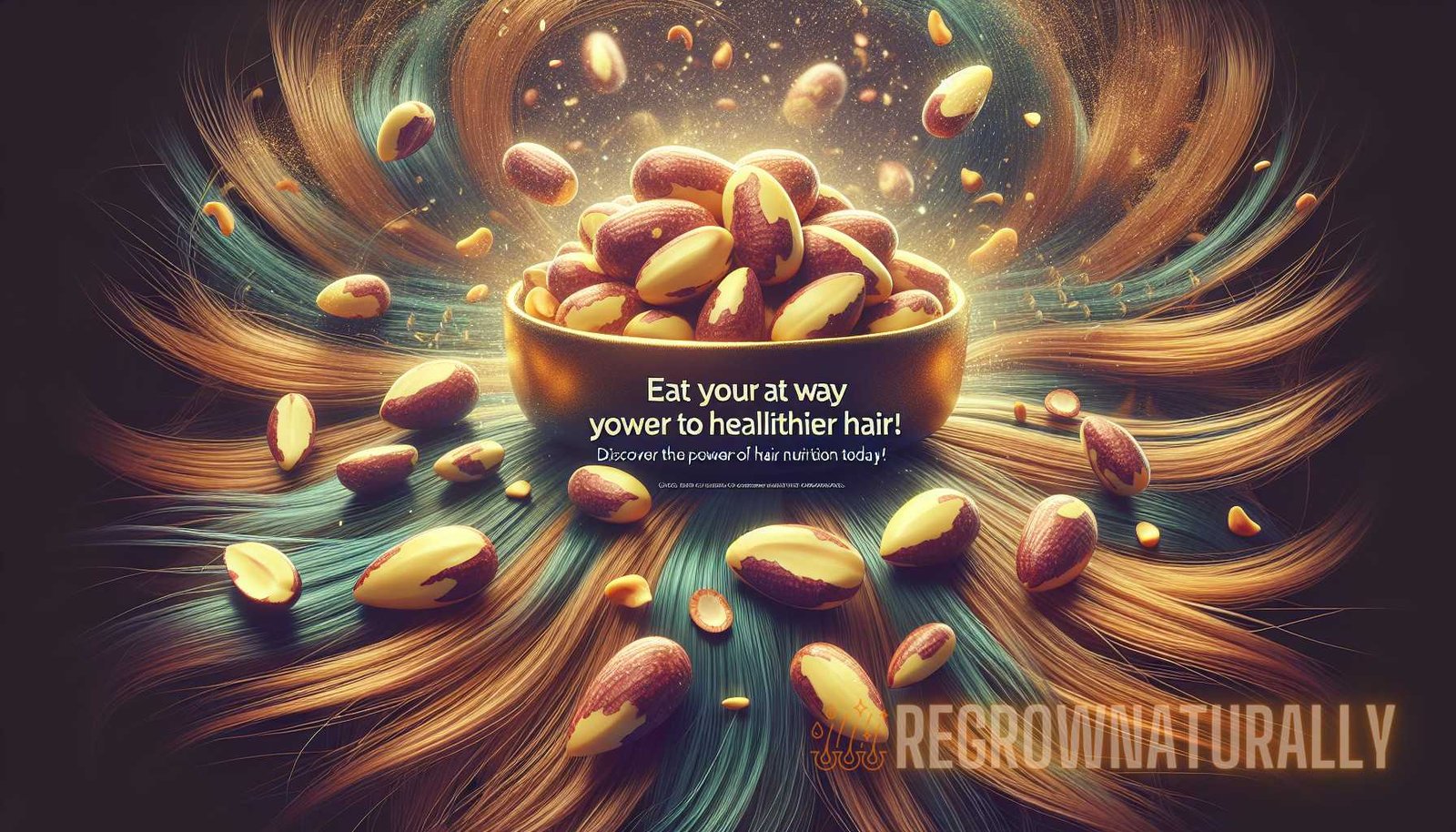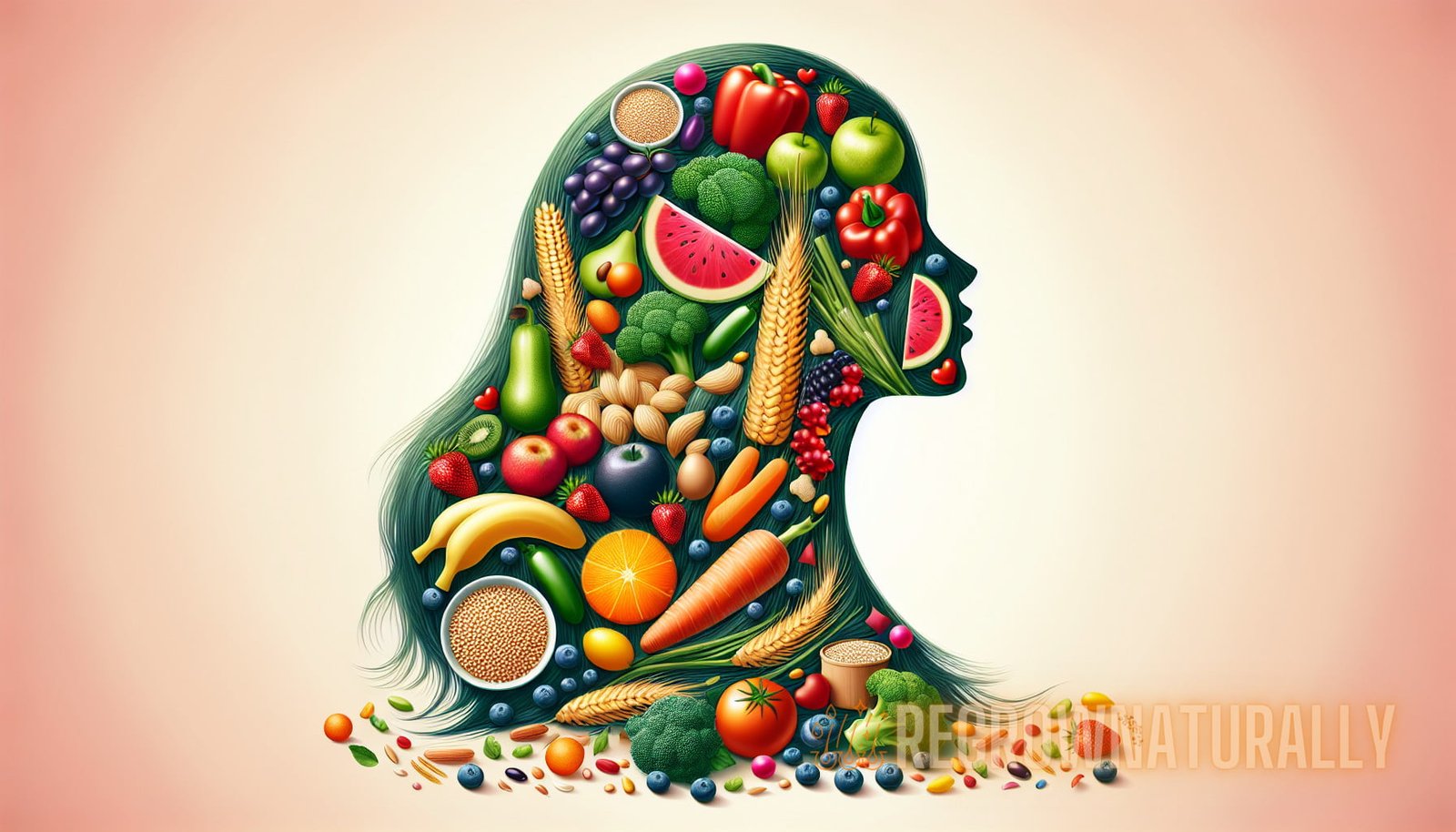Eating Your Way to Healthier Hair: A Nutritional Approach
Everyone dreams of having luscious, healthy hair. It’s often seen as a symbol of beauty and vitality. But achieving and maintaining healthy hair goes beyond using the right shampoos and conditioners. Your diet plays a crucial role in the overall health and appearance of your hair. In fact, what you eat can have a profound impact on the strength, growth, and shine of your hair. This article will explore the importance of hair nutrition and provide you with a comprehensive guide to eating your way to healthier hair.
Understanding Hair Nutrition
The first step in improving the health of your hair through nutrition is understanding what hair needs to grow and thrive. Hair is primarily made up of a protein called keratin, which is produced in the hair follicles. Therefore, a diet rich in protein is essential for healthy hair growth. In addition to protein, certain vitamins, minerals, and other nutrients are necessary for proper hair growth and maintenance. Let’s take a closer look at the key nutrients that contribute to healthy hair:
- Protein: As mentioned earlier, protein is the building block of hair. Consuming adequate amounts of protein ensures that your body has enough amino acids to produce keratin, which ultimately leads to stronger and healthier hair.
- Iron: Iron is crucial for hair growth as it helps red blood cells deliver oxygen to the hair follicles. Without sufficient iron, the hair follicles may not receive enough oxygen, leading to hair loss or slow growth.
- B Vitamins: B vitamins, particularly biotin, niacin, and cobalamin (vitamin B12), are essential for hair health. Biotin, in particular, is often associated with healthy hair, skin, and nails.
- Vitamin C: Vitamin C plays a vital role in collagen production, which is necessary for hair growth and strength. It also helps the body absorb iron more efficiently.
- Vitamin D: Vitamin D is crucial for hair follicle cycling and can help prevent hair loss. While the body can produce vitamin D through exposure to sunlight, getting enough through diet or supplements is important, especially for those living in areas with limited sunlight.
- Zinc: Zinc is involved in numerous processes in the body, including hair growth. A deficiency in zinc has been linked to hair loss and dry, brittle hair.
- Omega-3 Fatty Acids: These healthy fats are found in abundance in oily fish, walnuts, and flaxseeds. Omega-3 fatty acids are necessary for a healthy scalp and promote hair growth.
Top Foods for Healthy Hair
Now that we understand the key nutrients for healthy hair, let’s take a closer look at the top foods you should incorporate into your diet to promote optimal hair health:
Salmon
Salmon is an excellent source of omega-3 fatty acids, which are essential for a healthy scalp. Omega-3 fatty acids can nourish the hair follicles, promoting healthy hair growth and adding shine to your locks. Additionally, salmon is packed with high-quality protein, B vitamins, and vitamin D, making it one of the best foods for healthy hair.
Eggs
Eggs are a great source of biotin, a B vitamin that is essential for hair health. Biotin deficiency can lead to brittle hair and hair loss, so including eggs in your diet can help promote stronger, fuller hair. Eggs are also rich in protein and other hair-healthy nutrients like zinc and iron.
Spinach
Packed with iron, folate, and vitamins A and C, spinach is a powerhouse vegetable for healthy hair. Iron is essential for proper hair growth and can help prevent hair loss, while the vitamins in spinach promote a healthy scalp and aid in collagen production.
Sweet Potatoes
Sweet potatoes are an excellent source of beta-carotene, a precursor to vitamin A. Vitamin A is crucial for the production of sebum, an oily substance that keeps the scalp moisturized and promotes healthy hair growth. Incorporating sweet potatoes into your diet can help nourish your scalp and prevent dry, brittle hair.
Brazil Nuts

Brazil nuts are rich in selenium, a mineral that plays a vital role in hair health. Selenium helps the body produce antioxidant enzymes that protect the hair follicles and promote healthy hair growth. Just a few brazil nuts a day can provide your body with the selenium it needs for optimal hair health.
Greek Yogurt
Greek yogurt is not only delicious; it’s also packed with protein, a key nutrient for healthy hair. Additionally, Greek yogurt contains vitamin B5 (pantothenic acid), which is believed to promote hair growth and improve the thickness and strength of hair strands.
Lean Poultry
Chicken and turkey are excellent sources of lean protein, which is essential for hair growth. Lack of protein in the diet can lead to weak, brittle hair, so incorporating lean poultry into your meals can ensure you’re getting enough protein to support healthy hair.
Walnuts
Walnuts are a great source of omega-3 fatty acids, biotin, vitamin E, and copper, all of which contribute to healthy hair. Vitamin E helps protect the hair from oxidative stress, while copper aids in the production of melanin, the pigment that gives hair its color.
Creating a Hair-Healthy Eating Plan
Now that we’ve covered the top foods for healthy hair, it’s time to create an eating plan that incorporates these hair-boosting nutrients. Here’s a sample meal plan to help you get started:
| Meal | Food(s) |
|---|---|
| Breakfast | Eggs with spinach and whole-grain toast |
| Lunch | Grilled salmon with quinoa and steamed vegetables |
| Snack | Greek yogurt with walnuts and berries |
| Dinner | Grilled chicken with sweet potato fries and a side salad |
Remember to include a variety of nutrient-rich foods in your meals and snacks to ensure you’re getting all the necessary vitamins and minerals for healthy hair. Additionally, drink plenty of water to keep your hair and scalp hydrated.
Supplements for Hair Health
In addition to a healthy diet, certain supplements can help support the health and growth of your hair. If you’re unable to get enough of the necessary nutrients through your diet alone, consider adding the following supplements to your routine:
- Biotin: Biotin supplements can help improve the strength and thickness of hair strands. However, it’s important to consult with your healthcare provider before starting any new supplement regimen.
- Fish Oil: If you’re not a fan of fish or have trouble incorporating enough omega-3 fatty acids into your diet, fish oil supplements can be a good alternative.
- Vitamin D: If you live in an area with limited sunlight or have a vitamin D deficiency, adding a vitamin D supplement to your routine may help support healthy hair growth.
Conclusion
To sum it up, your diet plays a significant role in the health and appearance of your hair. Consuming a variety of nutrient-rich foods, such as salmon, eggs, spinach, sweet potatoes, brazil nuts, greek yogurt, lean poultry, and walnuts, can provide your body with the necessary vitamins, minerals, and proteins to support healthy hair growth. Remember to create a balanced eating plan that incorporates these hair-boosting foods and consult with your healthcare provider before starting any new supplement regimen. By nourishing your body from the inside out, you can eat your way to healthier, more beautiful hair.
For more information on hair nutrition, you can visit Wikipedia’s page on hair anatomy.



